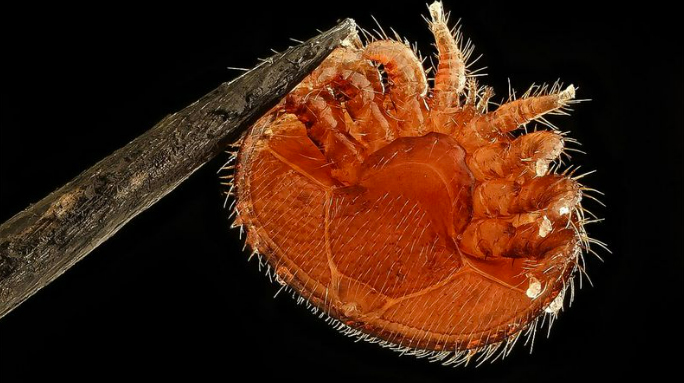Varroa Mite incursion in NSW – Status Update

Varroa Mite Response – Management Plan
As you may know, the National Management Group (NMG) for Varroa destructor (Varroa mite) met on 9 February 2024 and endorsed the National Response Plan incorporating the Transition to Management. The management plan, known as the ‘National Varroa Mite Response Plan V4.0’ has now been approved. As a signatory to the Deed, Avocados Australia agrees to a cost sharing model so we will be contributing to the cost of implementing the plan. Be assured that Avocados Australia has been working to represent the interests of growers and have examined the plan in detail and support it.
A detailed summary of the National Varroa Mite Response Plan V4.0 is now available and can be accessed online here: https://bit.ly/3TTHPhF. A copy of the one-page summary is also reproduced for you below:
The Varroa Mite Transition to Management (T2M) plan
Varroa mite (Varroa destructor) is the most serious pest of European honey bees. It was detected for the first time in Australia at the Port of Newcastle (NSW) in June 2022. An emergency response was initiated according to the Emergency Plant Pest Response Deed supported by the Commonwealth, state and territory governments, and agricultural industries potentially affected by this pest. The Response was led by the NSW Department of Primary Industries, and even though it was the largest agricultural biosecurity response in Australia to date, it was ultimately unsuccessful in eradicating Varroa mite.
In September 2023, the National Management Group agreed it was no longer feasible to eradicate Varroa mite and a plan to assist industry and the community to transition to management (T2M) should be developed. A 24-month T2M plan was approved in February 2024.
This plan will provide an orderly transition to management, minimising the ongoing effects of Varroa mite naturalisation on the European honey bee industry and pollination-reliant industries with a focus on business continuity. It aims to slow the spread of Varroa mite to allow beekeepers, pollination-dependent industries and the community sufficient time to prepare for expected future arrival.
The primary focus will be training beekeepers and providing them with the skills they need to manage Varroa mite and maintain healthy beehives. Tailored resources are being developed to provide accessible, reliable, current, and consistent information and training programs relevant to best practices in an Australian context. These resources are being delivered nationally online via a coordinated webinar series, and face-to-face training will also be conducted.
Varroa Development Officers (VDOs) will engage with commercial and recreational beekeepers to extend best management practice guidelines and resolve problems. They will also establish, coordinate and maintain a voluntary Varroa mite monitoring program in collaboration with volunteer beekeepers, beekeeping clubs and societies.
A National Pollination Industry Coordinator role will gather relevant information from pollination-dependent industries on their concerns, knowledge gaps and future needs related to living with Varroa mite within their industry.
Additional assistance and resources will be provided through updates to the Australian Honey Bee Industry Biosecurity Code of Practice and the Bee Biosecurity Manual. The Code provides a framework for Australian beekeepers to use best practice biosecurity measures. It is based on the principles of good biosecurity and describes the outcomes a beekeeper needs to achieve for good pest and disease prevention and control.
Diagnostic capability and capacity within NSW have been well established throughout the emergency response to Varroa mite. However, more work is required to bolster this capacity on a national scale to support ongoing surveillance and management needs. The T2M plan will share this knowledge, enabling interstate diagnostic laboratories to detect Varroa mite and associated exotic viruses quickly, initiating efficient responses.
The establishment of Varroa mite in Australia will radically change the way European honey bees are managed. While this is regrettable, the T2M plan will provide the knowledge and tools to allow Australian beekeepers, pollination-dependent industries and the community to use world’s best practices to minimise this pest’s impacts.
NSW DPI Interactive Heat Map – tracking the spread of Varroa destructor (Varroa mite)
You can access the NSW DPI interactive heat map that tracks the current spread of varroa mite here: https://bit.ly/45uBiwz
Avocados Australia – Our Activities:
Avocados Australia has been involved in the emergency response from the very beginning when the Varroa destructor incursion first began in June 2022. Avocados Australia will continue to participate in the CCEPP and NMG in assisting with the implementation of the management plan.
We want to acknowledge the enormous effort undertaken by all parties since the incursion began.
Growers are encouraged to do the following:
- Remain compliant through the response and follow directions given by agencies such as the NSW Department of Primary Industries, or the department in your jurisdiction
- Keep thorough records
- If you use commercial beekeeper services stay in contact with your beekeeper provider in case of updates.
For more information about the NSW DPI response visit the website: here.
This content is current as of 8 April 2024.
This update was also published in Guacamole 5 April 2024 edition.
Date Published: 13/02/2024